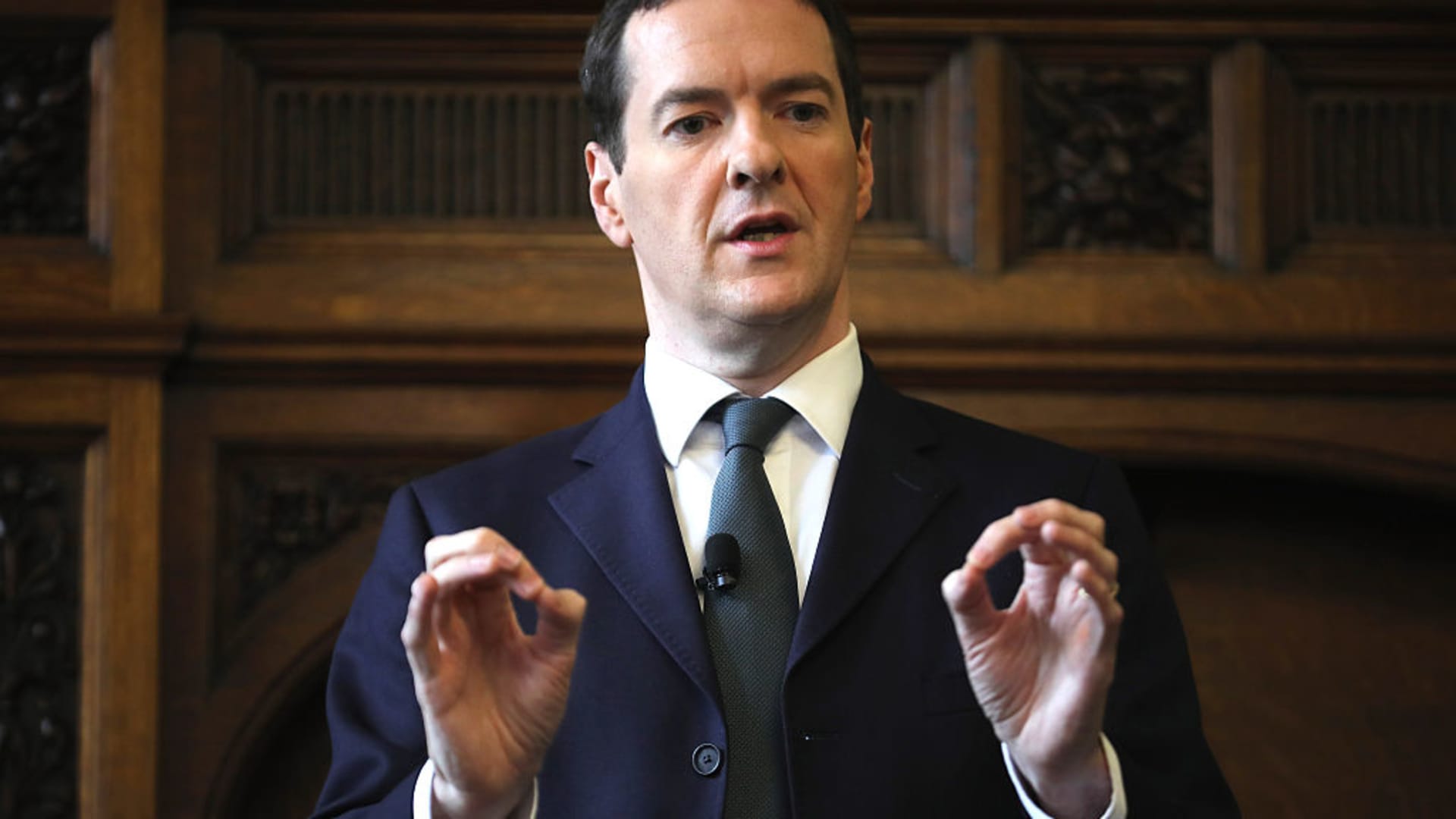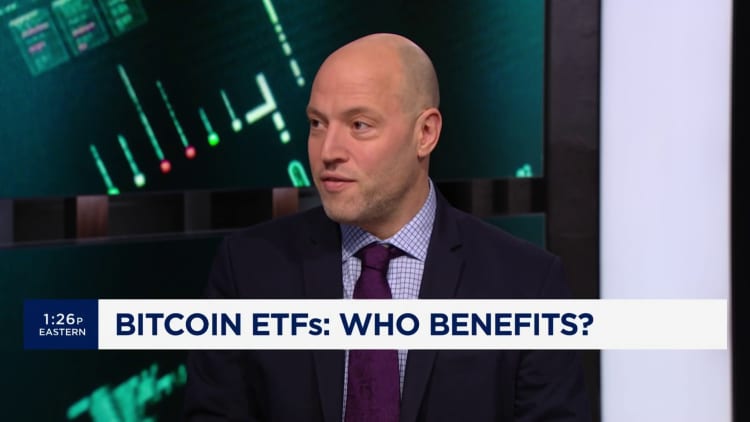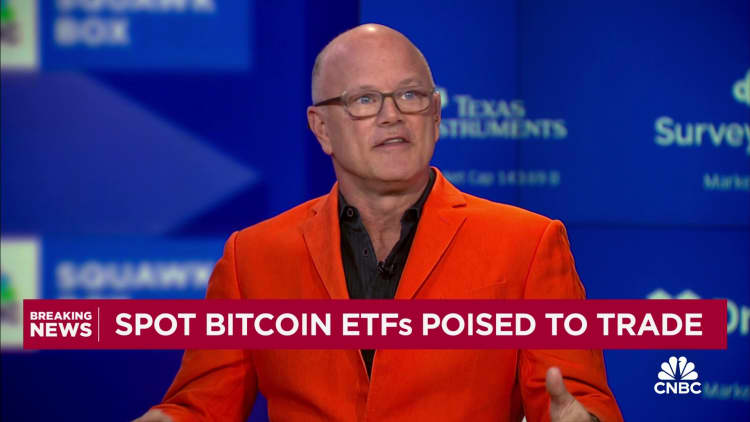Former UK finance minister joins Coinbase crypto exchange as an advisor


Former British Chancellor George Osborne addresses guests during a visit to the Manchester Chamber of Commerce on July 1, 2016 in Manchester, England.
Christopher Furlong | Getty Images
LONDON — A former British finance minister on Wednesday joined cryptocurrency exchange Coinbase as a global advisor, beefing up the company’s regulatory bargaining power at a time when it faces severe scrutiny stateside.
Coinbase announced that George Osborne, who served as Britain’s chancellor of the exchequer from 2010 to 2016, will join the company on its global advisory council.
He’ll join the likes of Mark Esper, the former U.S. Secretary of Defense and Patrick Toomey (R-PA) on the council, which is in place to “advise Coinbase on our global strategy as we grow our reach around the world.”
Faryar Shirzad, Coinbase’s chief policy officer, said the company was “pleased to have George join our council at an exciting time for us in the U.K. and globally.”
“George brings with him a wealth of experience in business, journalism and government. We look forward to relying on his insights and experiences as we grow Coinbase around the world,” Shirzard added.
Osborne will serve in an advisory capacity at Coinbase, helping connect the company with politicians and regulators to help further the cause of forming crypto-friendly regulations.
While chancellor of the exchequer, Osborne launched a slew of austerity policies aimed at reducing the budget deficit, including freezing child benefits, reducing housing benefits, and implementing a two-year pay freeze for public sector workers. He also tried to stimulate business activity by cutting corporation tax.
Osborne was temporarily editor-in-chief at London’s Evening Standard newspaper after completing his tenure as Britain’s finance minister. He is currently a partner at Robey Warshaw LLP, a boutique investment bank.
“There’s a huge amount of exciting innovation in finance right now,” Osborne said. “Blockchains are transforming financial markets and online transactions.”
“Coinbase is at the frontier of these developments. I look forward to working with the team there as they build a new future in financial services,” Osborne continued.
Osborne’s ties with Coinbase aren’t new
Suggestions of a growing relationship between Osborne and Coinbase first emerged last year, when Coinbase’s CEO Brian Armstrong spoke onstage in a fireside moderated by Osborne at a fintech event in London.
Osborne subsequently spoke with Coinbase’s chief financial officer, Alesia Haas, at a fireside chat in the Belvedere Hotel during the World Economic Forum in Davos, Switzerland.
It comes as Coinbase has made something of a land grab across Europe, expanding in multiple countries over the last few months with new licenses in place. The company was granted a virtual asset service provider license in France last month, paving the way for expansion of its services there. It has also recently secured licenses in Spain, Singapore, and Bermuda.
Coinbase is currently facing a harsh regulatory crackdown in the U.S. where the Securities and Exchange Commission has accused the company of violating securities laws. Coinbase denies the allegations.

Last year, Coinbase chief Armstrong appeared on stage with Osborne at the Innovate Finance Global Summit conference in London. At the event, Armstrong said he was open to investing more abroad, including relocating from the U.S. to the U.K. or elsewhere if the regulatory pressure on crypto companies continues.
“I think if a number of years go by where we don’t see regulatory clarity around us … we may have to consider investing more elsewhere in the world. Anything including, you know, relocating,” Armstrong told Osborne.
He told CNBC’s Arjun Kharpal at the time that Coinbase was “looking at other markets” as it considers its position from a regulatory standpoint.
Armstrong did later clarify in an interview with CNBC’s Dan Murphy that Coinbase had no formal plans to relocate from its U.S. headquarters in San Francisco. “Coinbase is not going to relocate overseas,” Armstrong said. “We’re always going to have a U.S. presence … But the U.S. is a little bit behind right now.”









